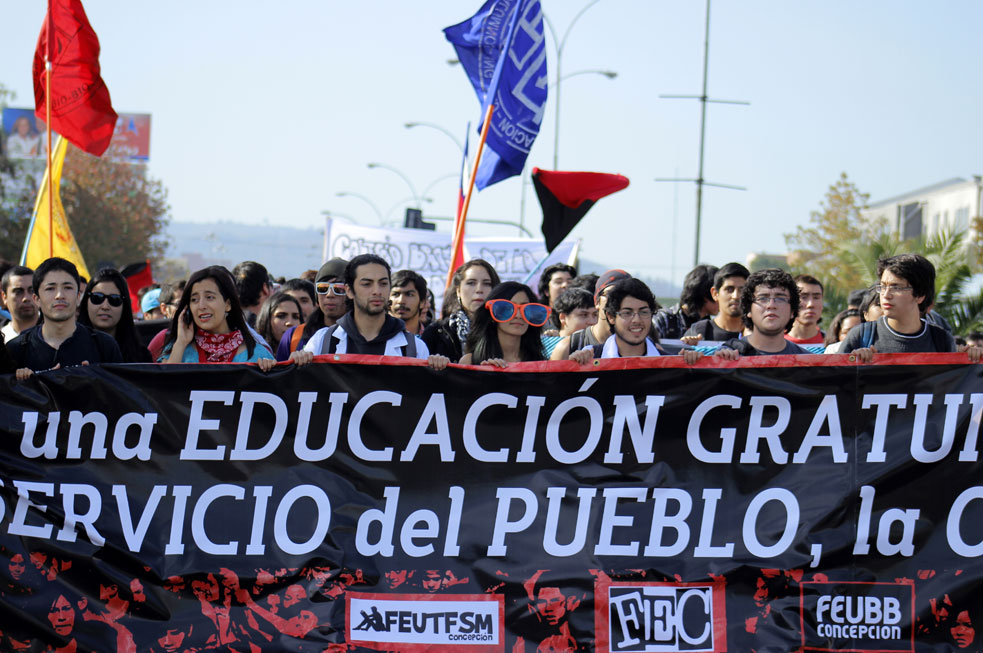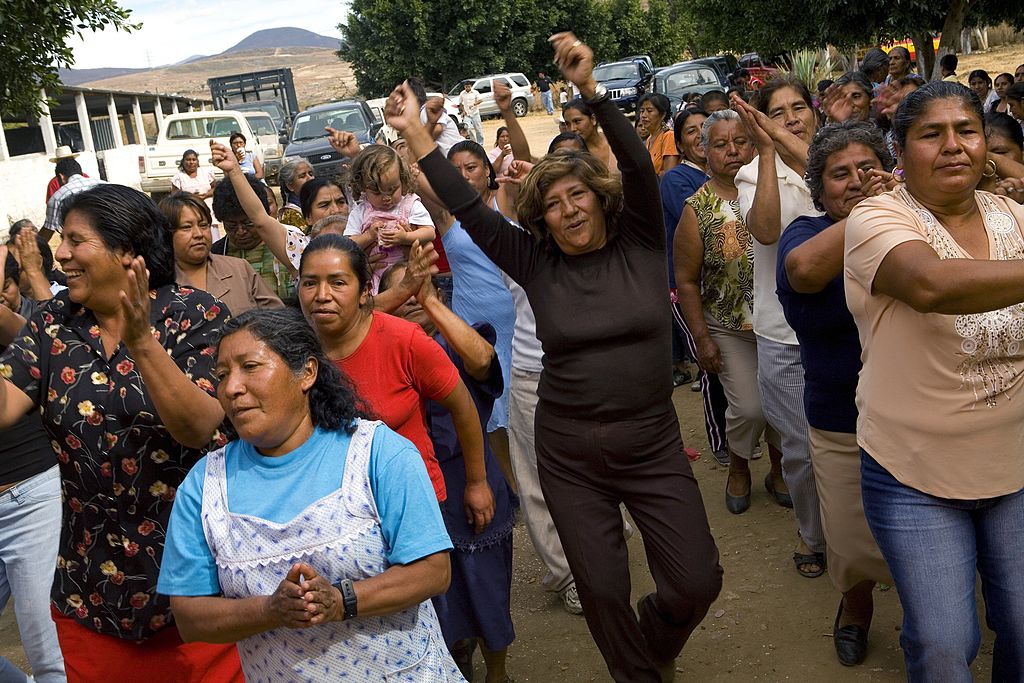On Tuesday, 80,000 university students in Chile received the good news that they were eligible for tuition-free education as part of a new program enacted by President Michelle Bachelet.
The moment should have been a high point for the country’s vocal – and powerful – student movement, which for years has been protesting for better and cheaper access to higher education.
Instead, many of Chile’s most prominent student advocates expressed their disapproval of the president’s initiative, despite the fact that 170,000 low-income students stand to benefit from the program in 2016 alone.
The reason, they say, is that the program doesn’t go far enough in addressing the underlying reasons that graduates in Chile pay three to five times more of their income in student loans than their peers in OECD countries.
While the new program pays for tuition and fees for students from the country’s most vulnerable households based on family size and household income, many more students in need are ineligible, and not all universities have to comply with the program. Some fear that the reform is focused too narrowly on financial assistance for low-income students – a palliative solution, they say, that does not address core problems behind the exorbitant costs students across the board have to pay.
“What the government does with this scholarship is give families money to buy education,” Gabriel Boric, a former student leader and current deputy in the national legislature, told AQ. “The education market is still there, the only thing that changes is that the family doesn’t have to go into debt but can pay along with everyone else. […] Our struggle is to eradicate the education market and strengthen public education.”
Boric says he is happy that fewer families will go into debt to send their children to university, but that simply giving families money to pay for education incentivizes institutions to raise tuition and their number of students. “More students, more money,” he said.
One student activist told AQ that the president’s reform considers cost the only problem students face in a system plagued by a variety of issues. “It isn’t the reform that we were discussing and proposing,” said Marta Matamala Mejía, spokesperson for Chile’s national umbrella organization of university groups, the Confederation of Chilean Students.
“What we want is structural reform that enshrines education as a right,” Matamala told AQ.
One point of contention for Matamala and other students is the Education Ministry’s decision to disqualify beneficiaries of the president’s program from obtaining other scholarships that could help pay costs beyond school fees and tuition. In a letter to El Mercurio, student leaders from the University of Chile called for the reversal of the ministry’s decision, arguing that it “weakens the public sense of education and runs counter to the national debate aimed precisely at guaranteeing the right to study.”
Matamala, who also serves as president of the University of Santiago de Chile Student Federation, told AQ that without these other scholarships, a university education remains costly. “The president’s measure is a broad scholarship that pays tuition and taxes, but doesn’t cover other expenses that students have to pay, such as books, transportation or food, so there’s a whole series of costs that are out of the program’s range.”
She says that her group in Santiago will continue to push for broader reform, and is planning a gathering of students and professors from different universities to discuss the type of reform they want to see implemented. Proposing a reform that the group endorses may prove more difficult than articulating what they’re against.
Meanwhile, the government response has been to present the program as just one step in a gradual overhaul of the country’s highly unequal education system. Indeed, President Bachelet has enacted a series of reforms over the past two years aimed at doing just that. Bachelet says the program will allow Chile to “end the privilege of a university education being only for those for those able to pay.”
With her approval ratings slipping lower, homing in on education could give Bachelet the means to reenergize her base. But when it comes to reforming Chile’s education system, a degree of discontent seems unavoidable. Last May, protests turned violent after the government enacted legislation prohibiting state-funded universities from selective admissions and profit seeking. And in July, teachers went on strike after the government increased teacher wages by tying them to student performance. The response to Bachelet’s latest reform may have been unexpected, but it should not be surprising.







